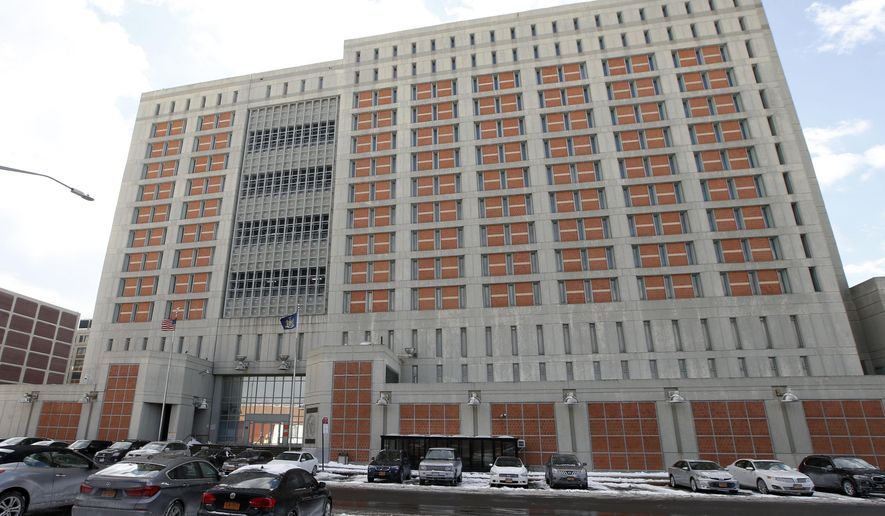A federal prison in Brooklyn struggled to screen inmates and workers for the deadly coronavirus because of staff and supply shortages, the Justice Department inspector general said in a report Tuesday.
The report found workers at the Bureau of Prisons’ Metropolitan Detention Center on May 1 had only 30 test kits for roughly 1,600 inmates and 450 staff members.
A review by the inspector general also found that the facility staffed between 20 and 22 of its 30 authorized health services providers between March 15 to May 15, when the pandemic was starting to surge.
The inspector general said the shortage of physicians was critical, concluding only one of the facility’s three authorized doctors were working at the institution after the pandemic began. The shortage continued through September, the inspector general said.
“The shortage of medical staff at MDC Brooklyn was among the biggest challenges in appropriately screening inmates and staff members for COVID-19 symptoms,” Inspector General Michael E. Horowitz wrote in the report. “This shortage continued through September 2020 and resulted in MDC Brooklyn struggling to meet the medical needs of non-COVID-19 inmates.”
Mr. Horowitz said 125 inmate sick call requests in March had not been scheduled or seen as of May 1.
Despite the shortages, MDC Brooklyn reported relatively few positive cases compared to other federal facilities. At the time of the inspector general’s May review, the facility reported six inmates and 36 staff members tested positive for the virus.
All told 14 inmates and 41 staffers tested positive for coronavirus, according to the most recent statistics on the Bureau of Prisons’ website. None of the reported cases were fatal.
Staff shortages were not the only issue hampering the facility’s response. Mr. Horowitz also concluded that the lack of personal protection equipment and other supplies also impacted testing.
The report concluded that health care providers were not given N95 respirators or gowns, even when they evaluated inmates with COVID-19 symptoms or those with confirmed cases.
At the time of the inspector general inspection, 90 percent of MDC staff said more PPE was “an immediate need.”
“Two MDC Brooklyn healthcare providers described the quantity of test kits as limited and the [Brooklyn Health Services Administrator ] explained that the institution tried to conserve its test kits to prepare for future outbreaks,” Mr. Horowitz wrote.
Although testing kits were in short supply during the early stages of the pandemic, Mr. Horowitz said starting in mid-May, MDC Brooklyn began receiving additional kits.
On May 14, MDC Brooklyn received a rapid COVID-19 test machine with roughly 175 test kits and since then received an additional 100 to 250 rapid test kits per week through Oct. 9.
The report was released as part of the inspector general’s remote review of federal prison facilities across the country. In June, the inspector general found that the Bureau of Prisons facility in Lompoc, California, struggled to contain the virus because of staff shortages and ineffective screenings.
Of the 125,155 federal inmates and 36,000 staffers in 14,218 facilities, 2,365 inmates and 953 staff members have tested positive for coronavirus nationwide, according to the Bureau of Prisons. Currently, 16,831 inmates and 1,525 staff members have recovered.
There have been 135 inmate deaths and two staff deaths attributed to COVID-19, with four occurring while on home confinement.
Earlier this year, Attorney General William P. Barr directed the federal prison system to reduce the inmate population by increasing the use of home confinement and expanding criteria for such transfers.
However, MDC Brooklyn only moved a few inmates to home confinement because the majority were not eligible for transfer, the inspector general said. As of May 5, only 76 inmates potentially eligible for a home transfer. Only 14 of those inmates had been transferred by the end of the month, the report found and only 14 had been transferred, the report found.
• Jeff Mordock can be reached at jmordock@washingtontimes.com.




Please read our comment policy before commenting.